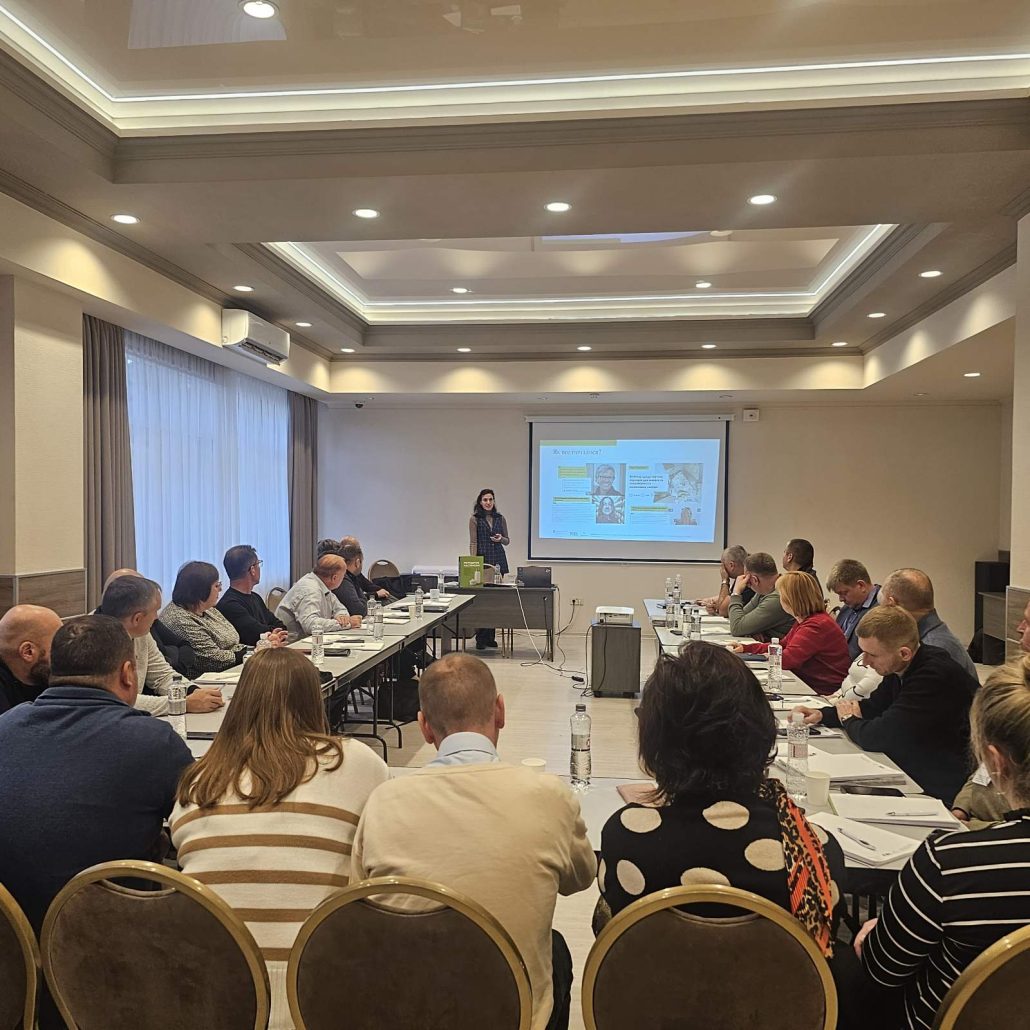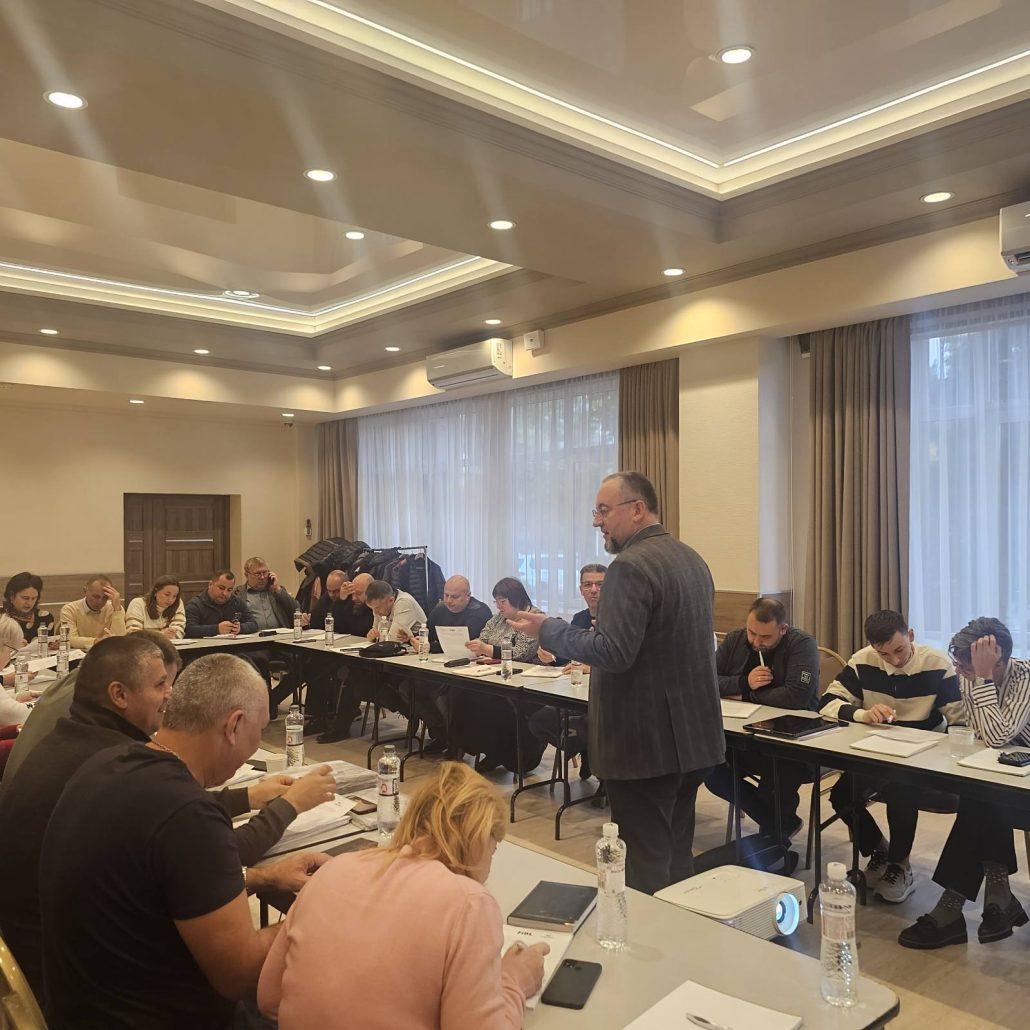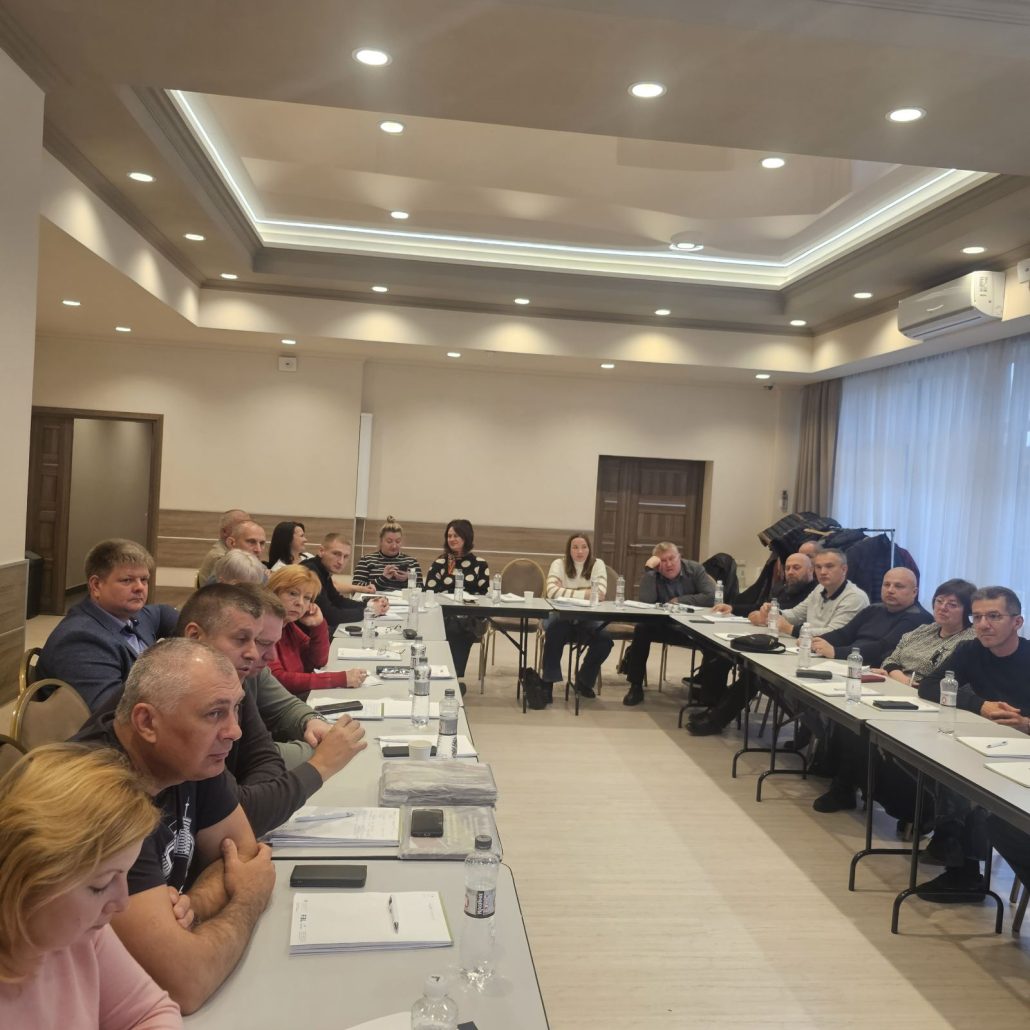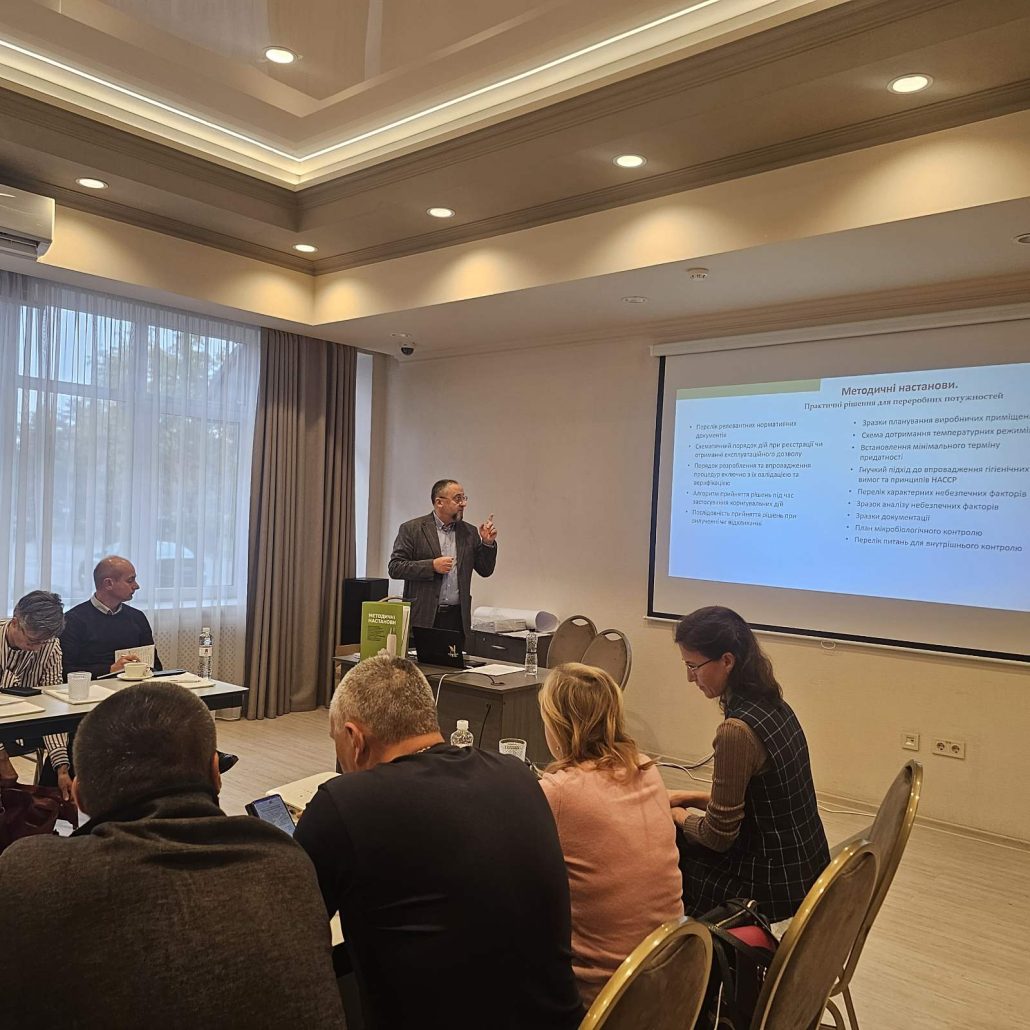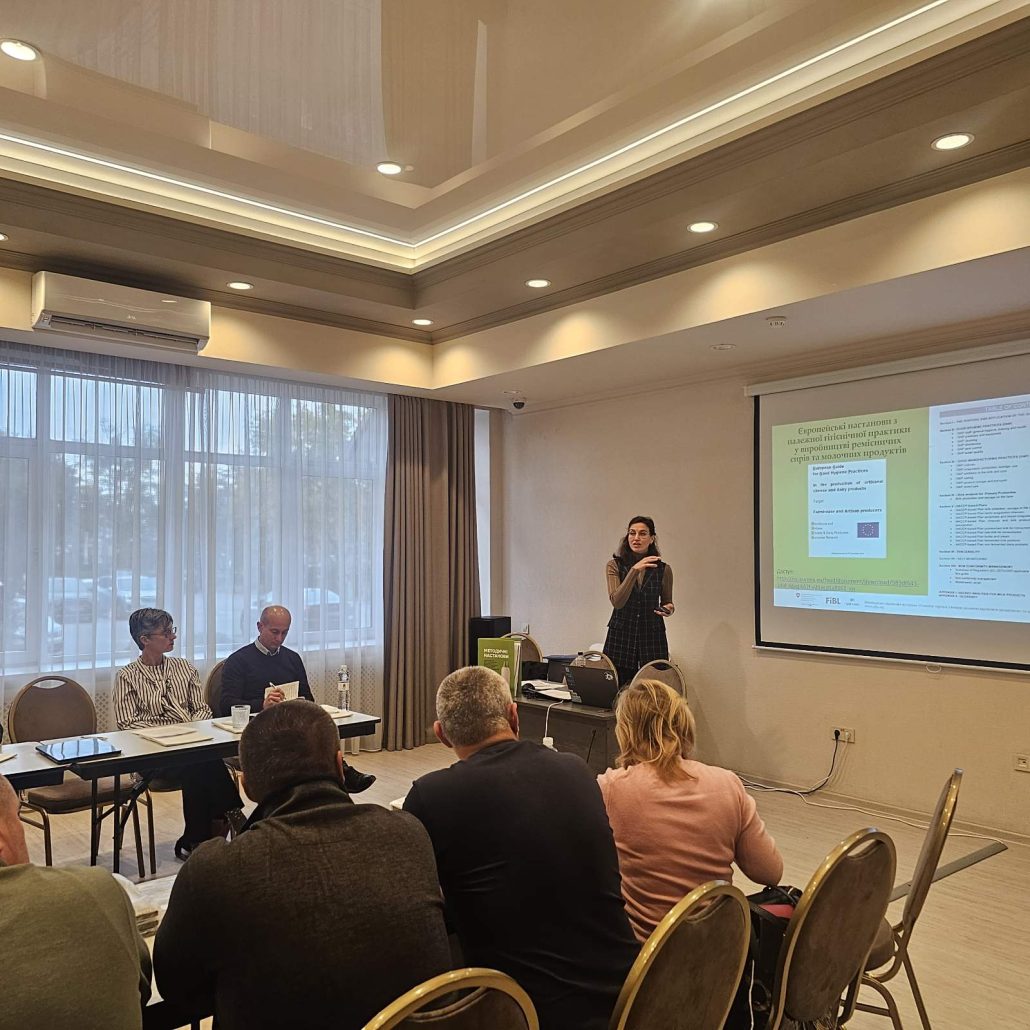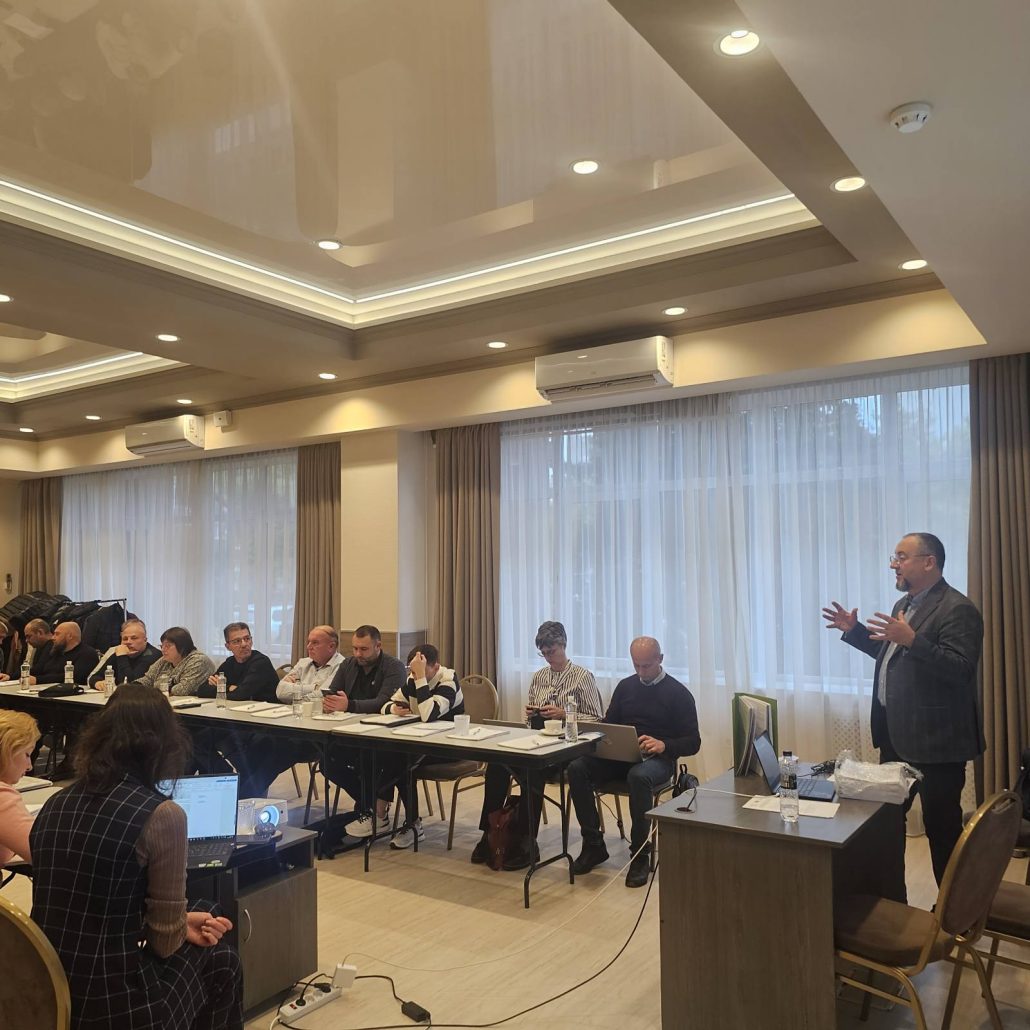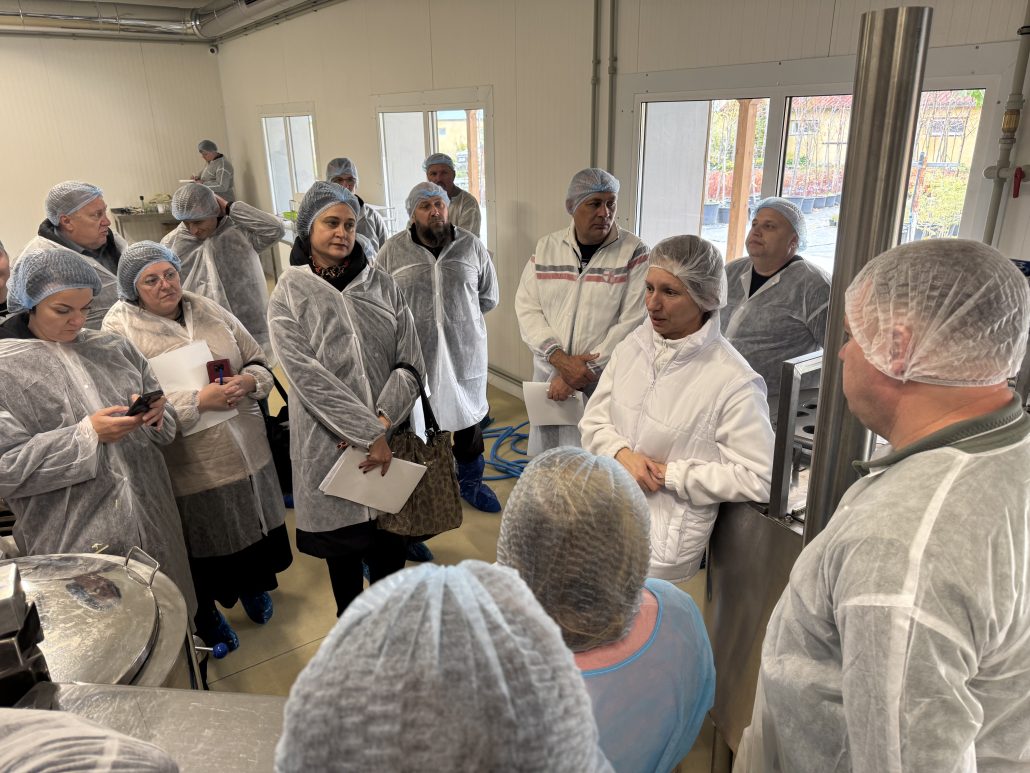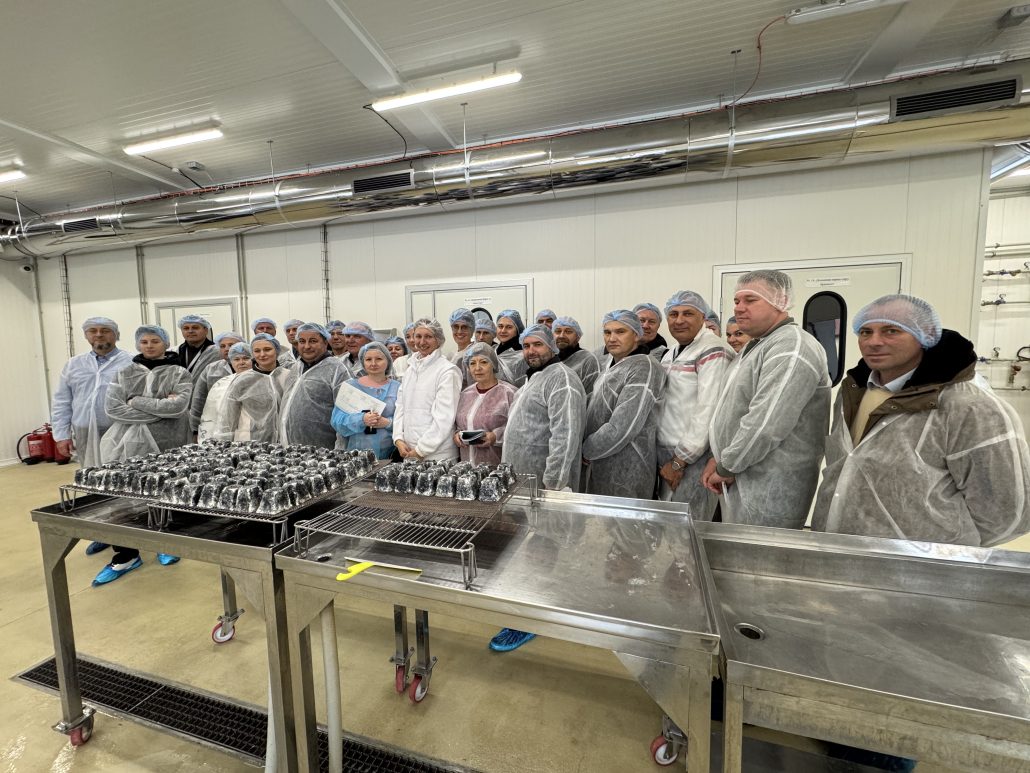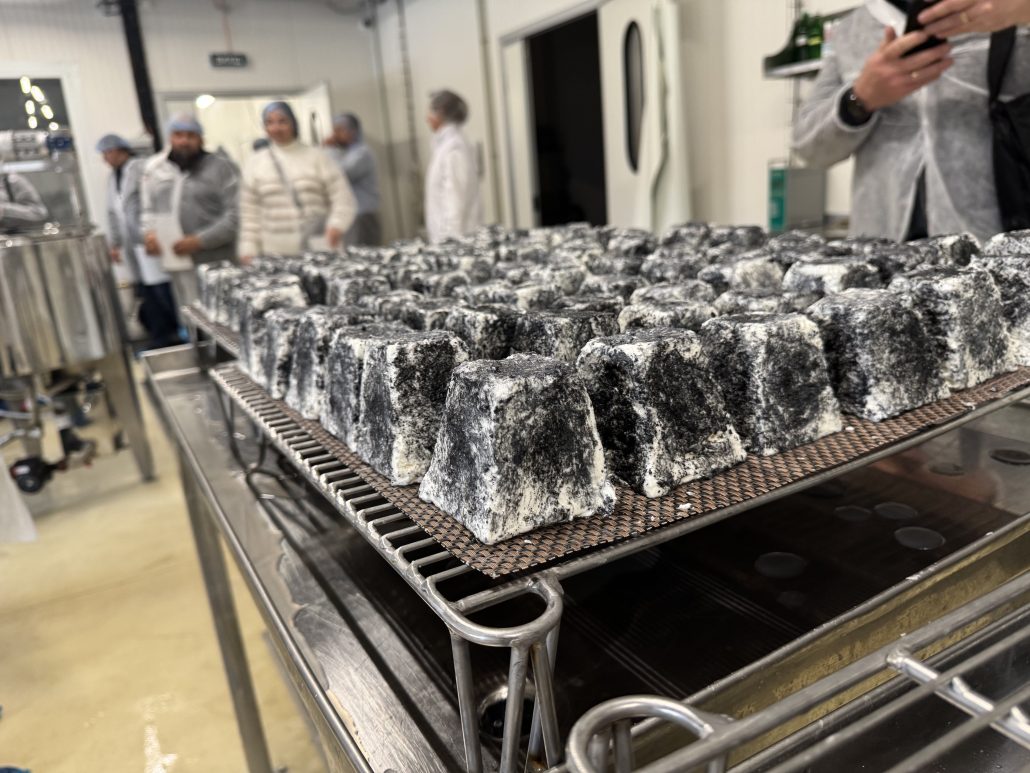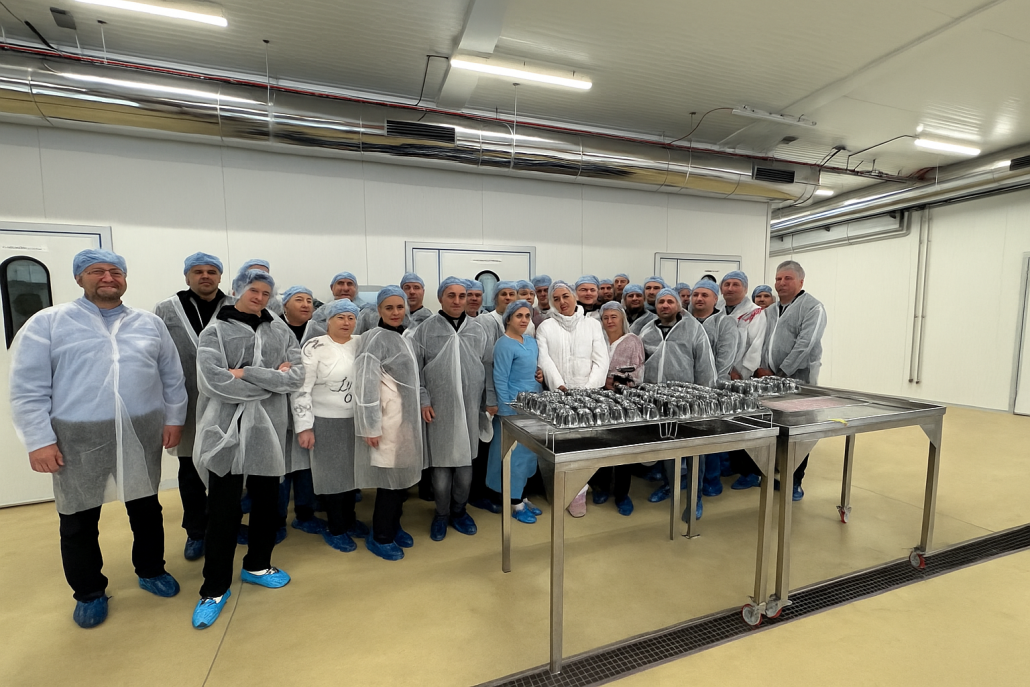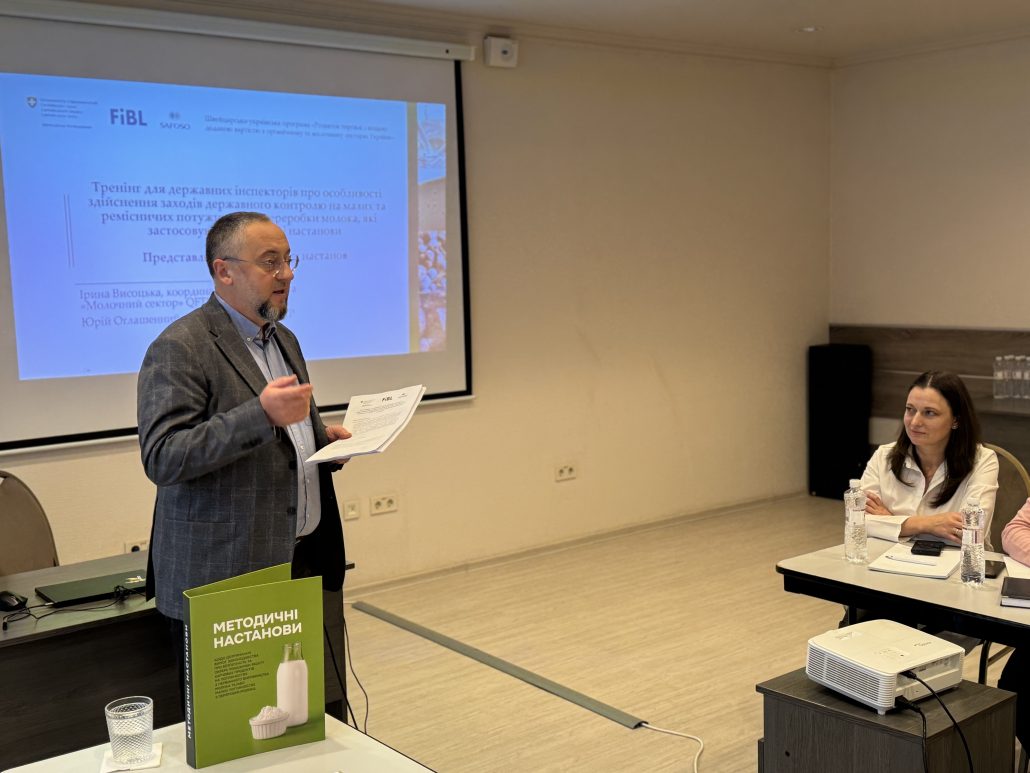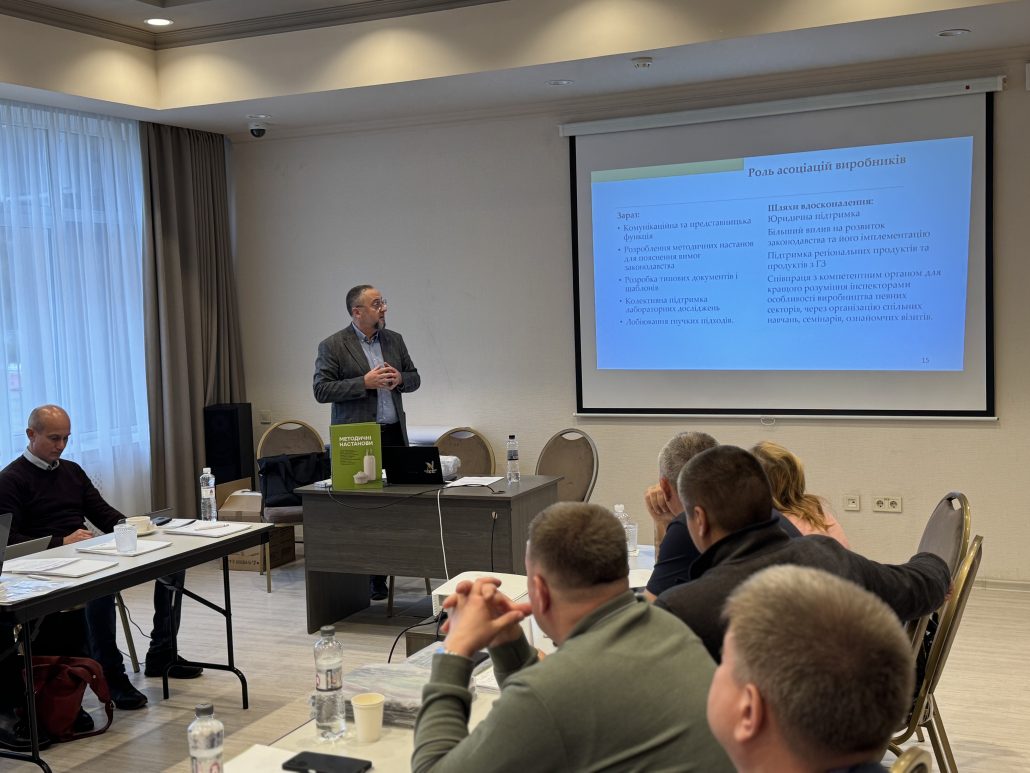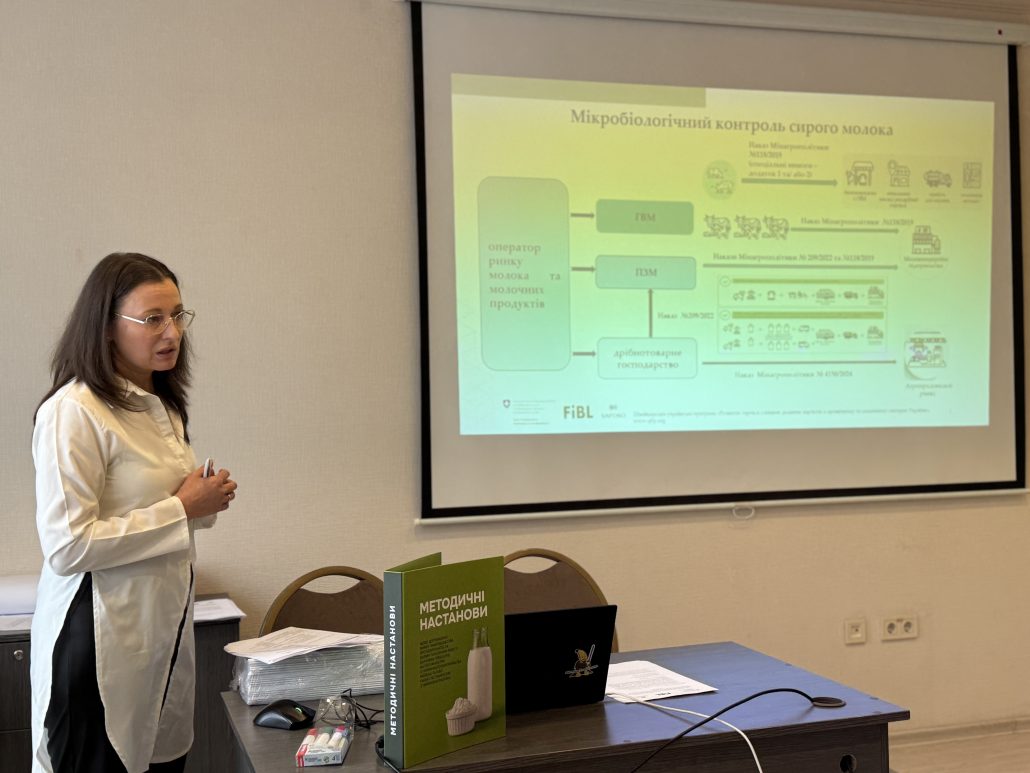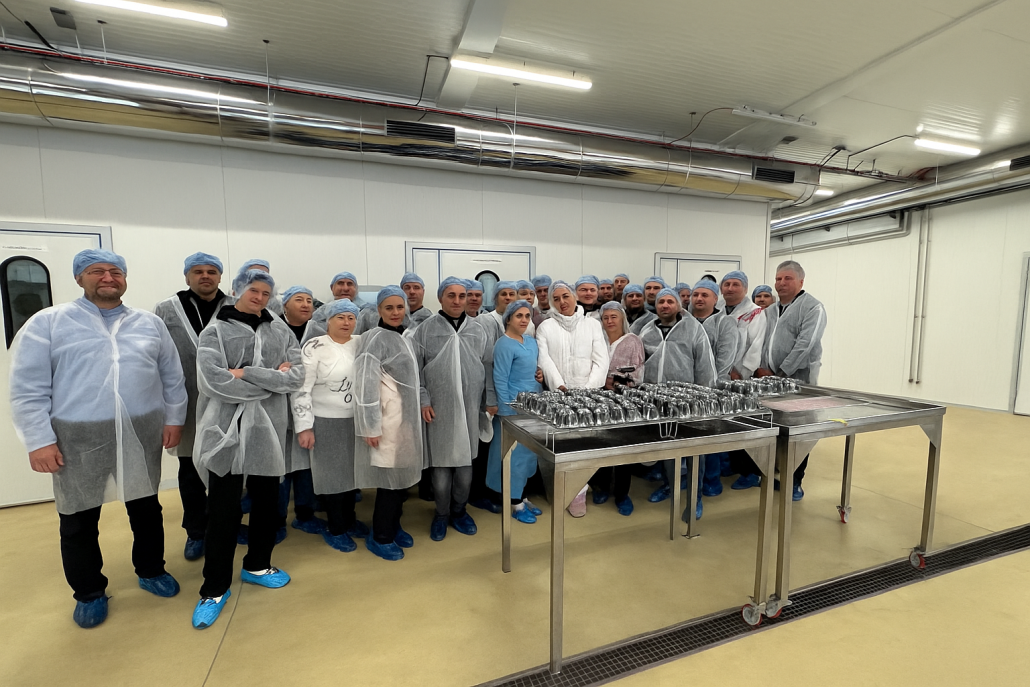
With the support of Switzerland, within the framework of the Swiss-Ukrainian Programme “Higher Value Added Trade from the Organic and Dairy Sector in Ukraine” (QFTP) a training course was held for inspectors of the State Service of Ukraine on Food Safety and Consumer Protection (SSUFSCP) on the specifics of implementing state control measures at small and artisanal milk processing establishments.
During the training, Methodological Guidelines for Compliance with Legislative Requirements on Safety and Certain Food Quality Indicators at Small Primary Milk Production Holdings and/or Milk Processing Establishments were presented, taking into account best Swiss and European practices.
Manon Schuppers, Co-CEO of SAFOSO AG, noted that maintaining proper hygiene during the production of dairy products is key to obtaining high-quality and safe products. “The HACCP system has become a widely recognised international standard for ensuring hygiene in food production, but its classic implementation is a complex challenge for small and medium-sized enterprises. Therefore, an adapted version of the system that takes into account the specifics of their work is more effective for such producers. The presented guidelines will be inspired by an approach that has long been successfully applied in the Swiss dairy sector. In Switzerland, industry representatives have come together and jointly developed a system that allows even the smallest cheese dairies in mountainous areas to maintain high hygiene standards,” explained Manon Schuppers.
According to her, this approach was presented by Swiss experts in Ukraine about five years ago. Since then, the Ukrainian QFTP team has made considerable efforts to adapt it to the Ukrainian context and implement it in the presented Guidelines together with representatives of business and government authorities.
Iryna Vysotska, Deputy Local Manager of QFTP, Dairy Sector Component Coordinator, presented the experience of Switzerland and the European Union in developing and implementing guidelines that help member states and food business operators better understand the rules and how to apply them in practice in specific sectors. In the EU, member states submit national guidelines to the European Commission, which, after verification, are entered into the official Register of National Guides to Good Hygiene Practices, which currently contains 692 documents. In addition, she noted that the EU has a Commission Staff Working Document on the Understanding of certain provisions on Flexibility provided in the Hygiene Regulations and related official controls on products of animal origin. Continuing her speech, Iryna Vysotska emphasised that the Methodological Guidelines, developed with the support of QFTP, contain practical recommendations for small milk producers and processors on managing hazards during the production and handling of raw milk, contributing to improved product safety and harmonisation of practices with European standards.
During the theoretical part of the training, Yuriy Ohlashennyy, Senior Consultant at QFTP, highlighted the following key topics:
- features of implementing procedures based on HACCP principles and the possibility of a simplified approach;
- regulatory framework and flexible approach in Ukrainian and European food legislation;
- definition of establishments categories and legal aspects: “small establishment for the production of food products of animal origin”, “artisan food product”, “traditional food product”;
- features of the application of hygiene requirements for traditional products and artisanal production;
- the role of associations, trainers, and consultants.
Tetiana Garkavenko, Senior Advisor for the Dairy Sector Component at QFTP, spoke about the most common microbiological hazards in establishment processing products of animal origin, the development of a plan for monitoring microbiological criteria, the specifics of safety and hygiene criteria for the technological process, the interpretation of research results, and the determination of food shelf life.
Special attention was paid to aspects of state control measures, in particular:
- preparation for inspections;
- risk-based categorisation of establishments;
- specifics of inspections of small production facilities and cheese factories;
- formation of partnerships between inspectors and market operators.
After the theoretical part, the training participants visited a small milk processing facility owned by Syroman LLC (Kyiv region), where they gained practical insight into the specifics of organizing production processes in accordance with the provisions of the Methodological Guidelines.
The head of the enterprise gave a detailed description of the structure of the production premises, the procedure for receiving and processing milk, compliance with hygiene requirements, the organisation of traceability, and record keeping.
During the visit, state inspectors had the opportunity to ask practical questions, discuss typical situations faced by small processors, and exchange experiences on the application of a flexible approach during state control of such establishments.
The training helped state inspectors gain a deeper understanding of the adapted HACCP requirements and the principles of a flexible approach to the control of small establishments. An infographic on the key findings of the guidelines is available at the link (in Ukrainian only).
